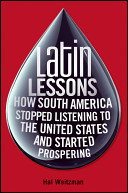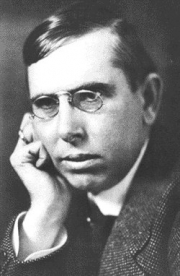
Hal Weitzman
Born:
Pen Name: None Connection to Illinois: Hal lives and workes in Chicago, Illinois. Biography: Hal Weitzman is Executive Director of Intellectual Capital at the University of Chicago Booth School of Business.Previousely, Hal Weitzman had been on the staff of the Financial Times since 2000, and was the Chicago and Midwest correspondent. He first joined as an editor on the FT's Op-ed desk, was named Americas News Editor in 2002, and was the newspaper's Andes correspondent from 2004 to 2007. He was based in Lima but travelled extensively, reporting from Peru, Bolivia, Ecuador, Venezuela and Chile. As well as the FT, his reporting from the region also appeared in the Los Angeles Times, The Miami Herald, New Statesman, The Irish Times, The Australian and Jane's Foreign Report. Originally from Wales, he was educated at the Kennedy School of Government at Harvard; Oriel College, Oxford; and Leeds University.
Awards:
Hal Weitzman on WorldCat : http://www.worldcat.org/search?q=hal++weitzman
Selected Titles
 |
Latin lessons : ISBN: 9780470481912 OCLC: 757134006 Wiley, Hoboken, N.J. : ©2012. The mistakes the U.S. has made in Latin America-and the high price it will pay for them. Washington has long told Latin American countries how to run their economies: bring in multinationals, eliminate the social safety net, keep government debt low, court U.S. politicians, and sign free trade agreements. In the past decade, many leaders-Hugo Chavez among the most visible-have rejected that, and those countries are now growing while the U.S. is falling apart. Combining sharp wit and great storytelling with trenchant analysis, Hal Weitzman explains why Latin America has turned against its powerful northern neighbor and why the region's newfound economic success will hurt the U.S. Reveals how the politics of oil and the rise of resource nationalism are reshaping America's role in the global economy and negatively affecting its prosperity at home. Illustrates analytical points with vivid stories and examples: the disappearance of the Panama hat, the sweater Evo Morales wore on a trip to Europe, and more. Written by a Financial Times journalist who formerly served as their Andean correspondent based in Lima, Peru -- |




